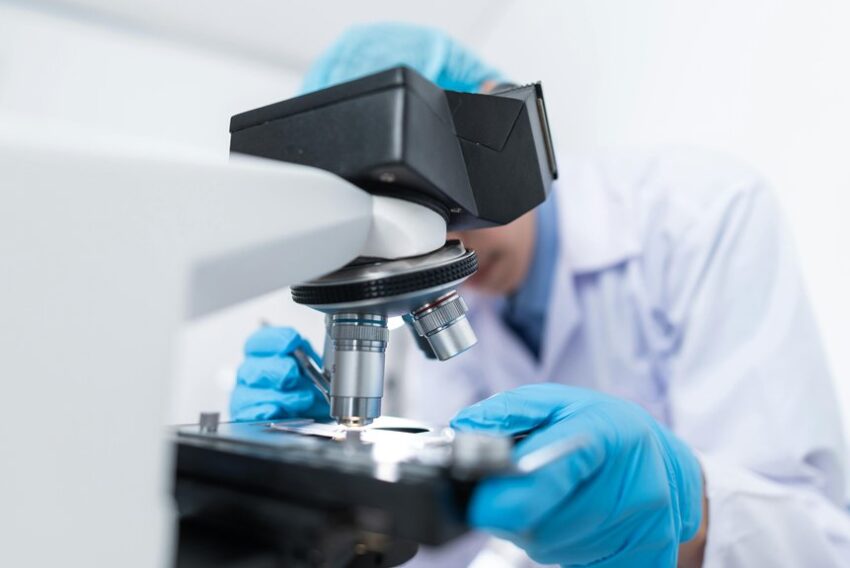Have you ever wondered how your body orchestrates the complex process of achieving an erection? It’s not just about physical arousal; a blend of hormones, nerve signals, and blood flow all play vital roles. Understanding these elements can empower you to enhance your sexual health considerably. But what lifestyle choices or medical conditions might disrupt this delicate balance? Let’s explore the essential factors that contribute to healthy erections.
The Anatomy of an Erection
When you understand the anatomy of an erection, it becomes clear how various systems work together to create this natural response.
The process begins in the brain, where sexual arousal triggers signals that travel down the spinal cord. These signals stimulate the nerves in the penis, leading to the release of chemicals that relax blood vessels.
As blood flow increases, the erectile tissues, known as the corpora cavernosa, fill with blood, causing the penis to enlarge and stiffen. This engorgement not only creates the physical state conducive to intercourse but also helps maintain the rigidity needed during sexual activity. Understanding this process can help you appreciate the importance of both physical and psychological factors in achieving healthy erections. Additionally, supporting nitric oxide levels can enhance blood circulation, further promoting healthy erectile function.
Hormonal Influences on Erection Quality
Although many factors contribute to erection quality, hormonal balance plays an essential role in determining how well you can achieve and maintain an erection.
Testosterone is the primary hormone influencing libido and erectile function. When your testosterone levels are ideal, you’re likely to experience better erections. Low levels can lead to reduced sexual desire and impaired erections.
Additionally, other hormones like estrogen and prolactin also affect your sexual performance. For instance, excess estrogen can negatively impact testosterone levels, leading to difficulties.
Maintaining a healthy lifestyle, including regular exercise, a balanced diet, and adequate sleep, can help you regulate your hormones.
If you suspect hormonal imbalances, consider consulting a healthcare professional for proper evaluation and potential treatment options.
The Role of Blood Flow in Erections
Blood flow is the lifeblood of achieving and maintaining an erection, as it directly influences the size and firmness of the penis. When blood vessels in the penis dilate, increased blood flow fills the erectile tissue, leading to an erection. Factors like stress, diet, and exercise can affect this vital blood flow.
To better understand the role blood flow plays, consider the following table:
| Factor | Impact on Blood Flow |
|---|---|
| Healthy Diet | Improves circulation |
| Regular Exercise | Enhances vascular health |
| Smoking | Reduces blood flow |
Nerve Signals and Erection Mechanisms
While many factors contribute to achieving an erection, nerve signals play a significant role in the process. When you become sexually aroused, your brain sends signals through the spinal cord to the nerves in your penis.
These signals trigger the release of neurotransmitters, which relax the smooth muscles and dilate blood vessels in the penile tissue. As blood flows into the penis, it fills the erectile chambers, leading to an erection.
It’s essential to know that any disruption in nerve signals—due to injury, disease, or stress—can affect this process. Understanding this mechanism helps you appreciate the importance of maintaining a healthy nervous system for ideal erectile function.
Taking care of your overall health can support this intricate system.
Lifestyle Factors Affecting Erectile Health
When it comes to maintaining healthy erections, your lifestyle choices play an essential role.
Regular exercise boosts blood flow and improves cardiovascular health, both important for strong erections. Adequate sleep is also essential; it helps regulate hormones and reduces stress.
Eating a balanced diet rich in fruits, vegetables, whole grains, and lean proteins can enhance your overall health and erectile function.
Avoiding smoking and excessive alcohol consumption is important, as both can impair blood circulation.
Managing stress through mindfulness or relaxation techniques can further support your erectile health.
Common Medical Conditions Impacting Erections
Various medical conditions can greatly impact your ability to achieve and maintain erections, making it essential to understand their effects.
Diabetes is one major culprit; it can damage blood vessels and nerves, leading to erectile dysfunction (ED). Cardiovascular diseases, including high blood pressure and atherosclerosis, restrict blood flow, which is vital for erections.
Hormonal imbalances, like low testosterone, can also play a significant role. Additionally, neurological conditions such as Parkinson’s disease or multiple sclerosis may interfere with nerve signals required for arousal.
Obesity and metabolic syndrome are linked to ED as well, often exacerbating other health issues. Recognizing these conditions can help you seek appropriate treatment and improve your sexual health effectively.
Don’t hesitate to consult a healthcare provider for guidance.
Psychological Factors and Sexual Performance
Understanding the psychological factors affecting sexual performance is vital for achieving healthy erections. Your mental state plays a significant role in how you experience arousal and intimacy.
Stress, anxiety, and depression can create a vicious cycle, leading to increased performance pressure and further anxiety. You might find that negative thoughts or past experiences can also impact your confidence in the bedroom.
Communication with your partner is important; openly discussing feelings and desires can alleviate tension. Additionally, practicing relaxation techniques, like deep breathing or mindfulness, can help you stay present and focused.
Recognizing that these psychological factors are common and manageable can empower you to cultivate a healthier sexual experience and improve your overall well-being.
Tips for Maintaining Healthy Erections
Maintaining healthy erections involves a combination of physical, emotional, and lifestyle factors.
Start by prioritizing regular exercise; it boosts circulation and strengthens your heart. A balanced diet rich in fruits, vegetables, whole grains, and lean proteins can improve blood flow and hormone levels.
Don’t underestimate the power of sleep—aim for 7-9 hours each night to support overall health. Manage stress through mindfulness practices or hobbies you enjoy, as anxiety can impact performance.
Limit alcohol intake and quit smoking, both of which can hinder erectile function. Finally, communicate openly with your partner; emotional intimacy can enhance your sexual experience and confidence.
